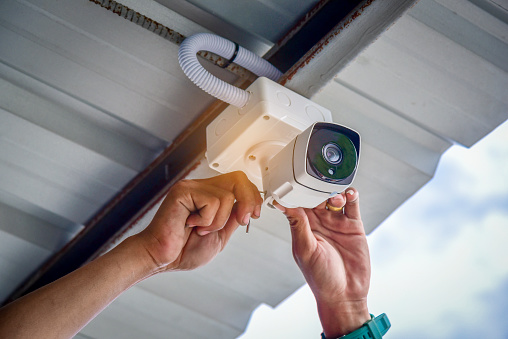
Whether you are looking for a way to add security to your home or office, or you need a system that will operate during a power outage, a solar powered security camera can help. These cameras use clean, renewable energy to produce electricity, and can also be transported to remote locations. They can lower your monthly electric bills and provide protection for your property.
One of the easiest ways to power your camera is to use a solar panels Eltham. These can be purchased separately, or you can purchase a complete system, which includes a solar panel, a camera, and rechargeable batteries. The panel will be used to charge the camera, and the battery will provide power during the night.
Solar panels can be placed in a variety of locations, but the best place for them is one that gets full sun for six hours a day. The panel should also be placed in a location that is not in shadow of any objects. Depending on your location, you may have to consider adding a backup battery to your camera.
You can use the voltage calculator on your camera to determine how much power it will take to operate. This will vary by season and location, but an average of three to 12 days will be required before a recharge is needed.
If you are planning to install your solar power camera in a remote location, it is best to consult with a solar power provider. CCTV Eltham professionals will help you determine how much power your camera needs, and will help you determine the best location for the panel. You will also need to make sure your camera has a wireless network. If it does not have wireless capabilities, you will need to use a cable to transfer data. Most wireless equipment comes with an AC power adapter for standard electric installations.
You should use a voltage calculator to determine how much power your solar panel needs. If you need a higher voltage, you can add an inverter to the system. You may also want to install an alarm sensor to detect activity in your home, or use floodlights as a deterrent.
If you are installing a solar powered security camera, you should consider the peak sun hours in your area. These are the hours when the sun is at its hottest and brightest, and can vary by season. To determine your peak sun hours, you will need to know your location’s latitude. In Denver, Colorado, for example, the latitude is 39 degrees. The average sun hour is measured in kWh/m2 a day. If your location has a higher sun hour average, you can increase the wattage of your solar panel.
If you plan on installing your camera in a location that receives a large amount of sunlight, you may want to purchase a higher wattage solar panel. This will help to charge the camera battery more quickly, and will provide more power for your camera.